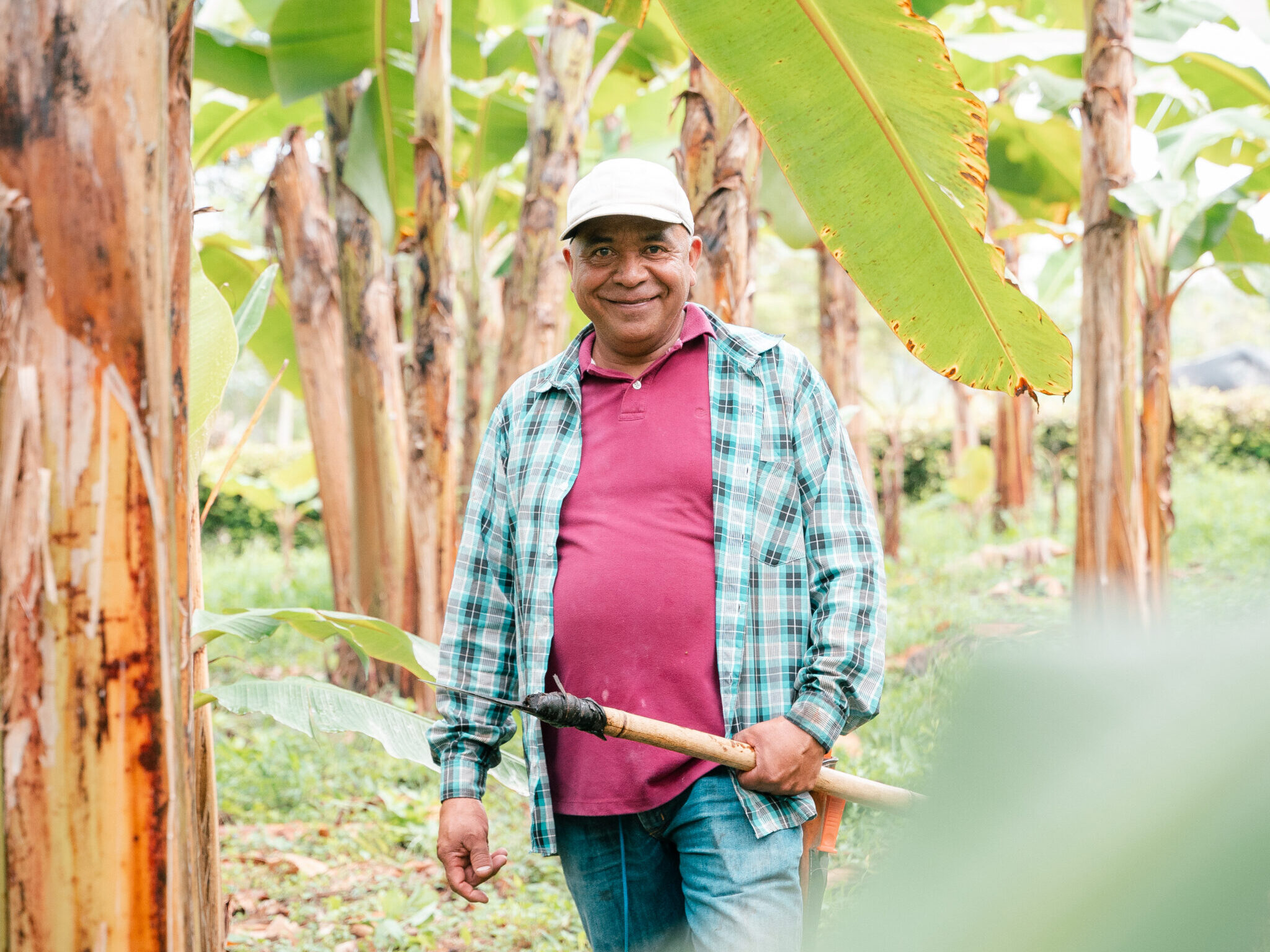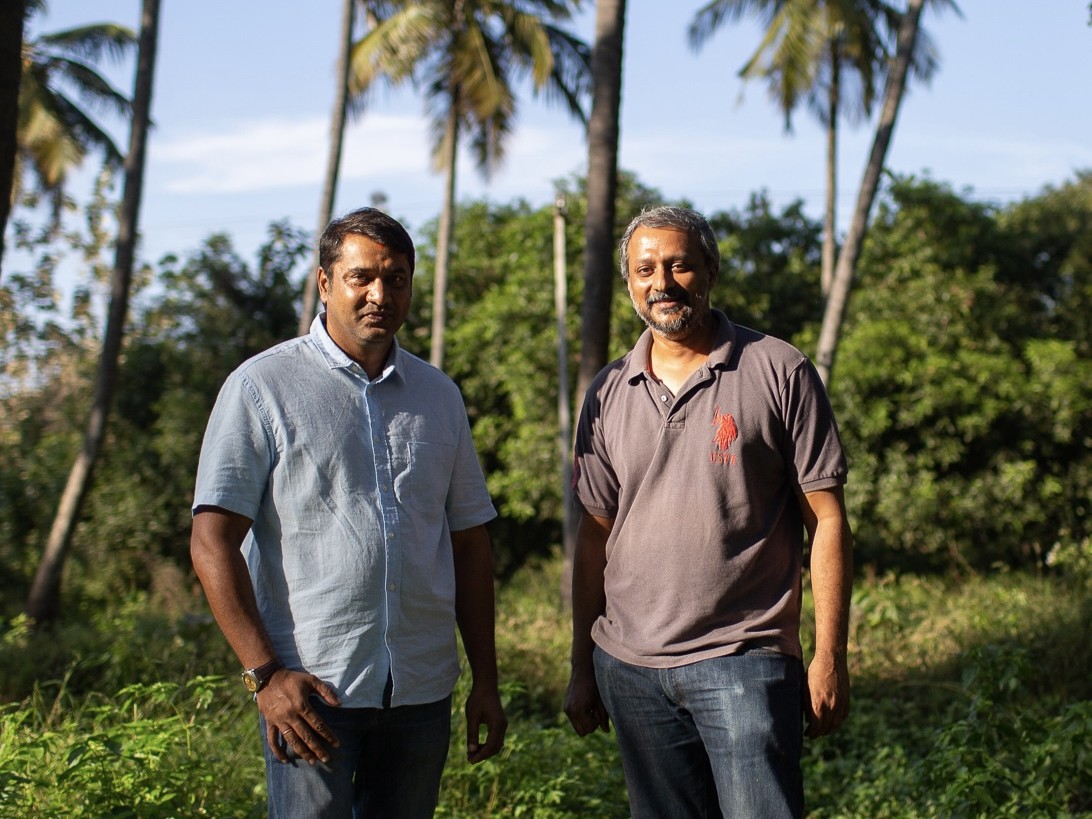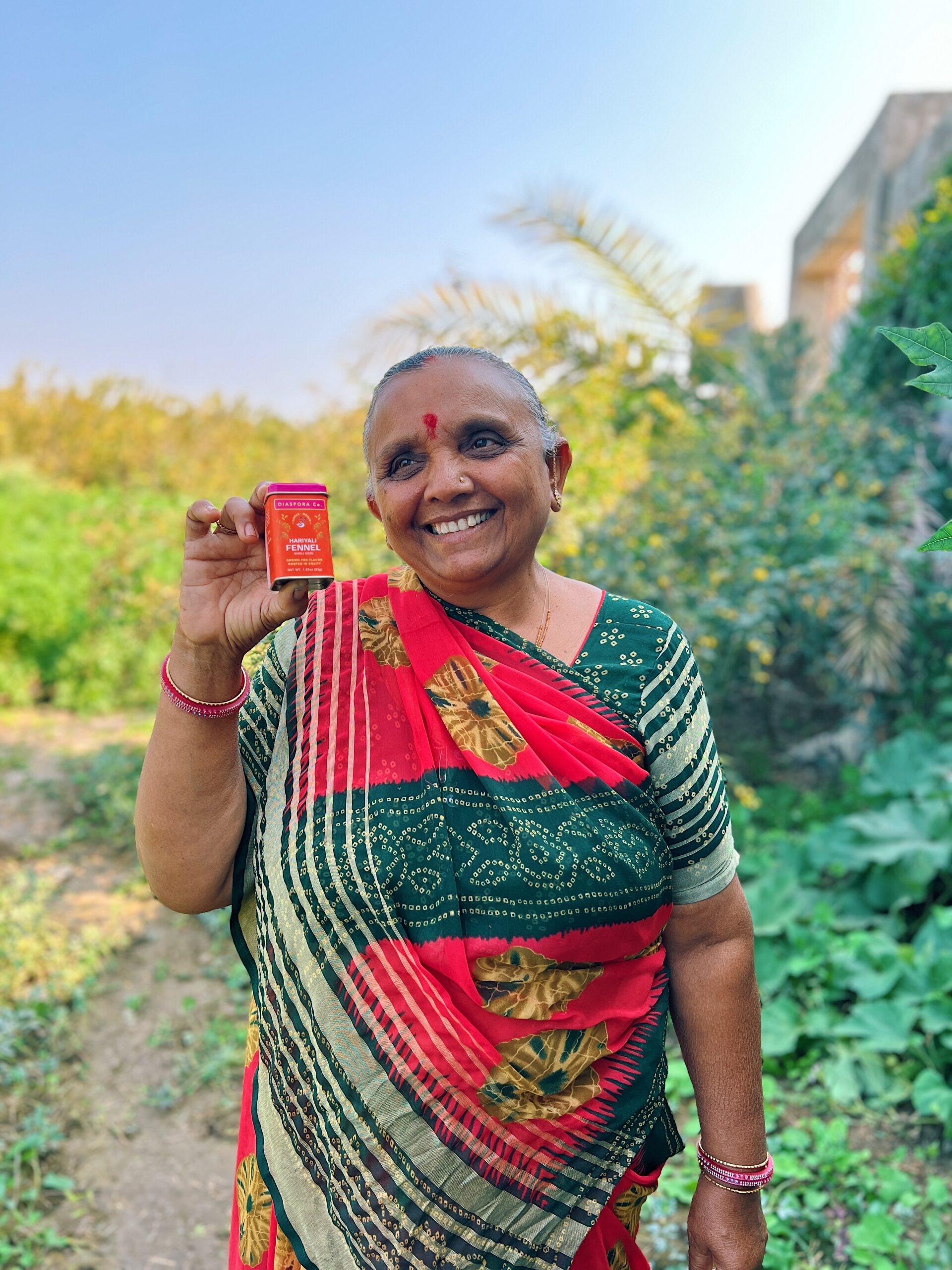At RSF, we see education and life-long learning as central to the renewal of culture. The Esalen Institute and Hollyhock Learning Centre offer unique opportunities to cultivate deep change in self an society. Here, Dana Bass Solomon, Hollyhock CEO and RSF investor, and Tricia McEntee, Esalen CEO (an RSF borrower) discuss how individual change can flourish to create better enterprises, movements, and a healthier world. This article was originally published in the Winter 2013 RSF Quarterly. Catch the podcast for more of our Clients in Conversation. Interview with Marta Abel, Communications Associate
Marta: How did each of you come to be involved with your organizations?
Tricia: I came from the business world. I’m a CPA and had held Chief Financial Officer positions in both for-profit and in non-profit organizations through my career. I came to Esalen in February of 2006 for a weekend workshop with Brother David Steindl-Rast called “The Noble Cause of Business.” At that time I had been following quite a contemplative spiritual path in my personal life. I just fell in love with Esalen—it just felt like home. It spoke to me on a personal spiritual level, and with the beautiful physical environment here in Big Sur, I was just swept away.
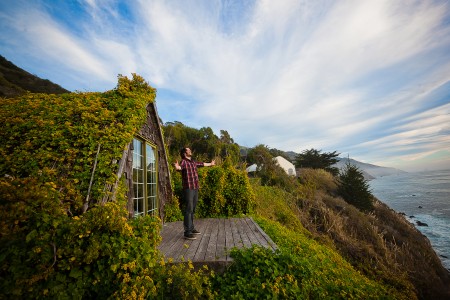
Dana: My story involves a bit of magic and a bit of practicality. I first heard about Hollyhock over 20 years ago when I lived in a little mountain town in Colorado. I met two of the founders who had just acquired the land which was to become Hollyhock. It sounded like an extraordinary place. Fast forward several years. I was the general manager of a hot springs property in California when I heard from a colleague that she was coming to Hollyhock to participate in “Spirit and Business,” a precursor conference to Social Venture Institute. I made arrangements to join her.
Tricia: It’s interesting that we both came to these places for similar workshops—to explore the idea of spirituality and business, and how much impact it could have on our world if we really had noble businesses.
Dana: Yes it is. Hollyhock was founded on the idea of positive change for a better world. One of our founders was involved in the founding of Greenpeace. We have always been focused on providing lifelong learning programs and inspiring people to create just and healthy organizations, communities, and cultures. Hollyhock’s leadership programs and conferences often include personal and professional skill development. We think about personal development as a key factor in building successful individuals, enterprises, organizations, and campaigns. The individual is where the growth begins. Learning how to be more skillful human beings, then taking that out into the world helps support successful enterprises and organizations. I think that that is what we’re all doing through various methodologies, both at Hollyhock and Esalen.
Tricia: Yes it is. Our terminology for it is “From Me to We.” I think there’s a sense of urgency to take our personal growth out into the world to make positive change. We don’t have a lot of time to waste so we’re trying to put a lot more emphasis on that.
Marta: How has the work at Hollyhock and Esalen, contributed to your own personal development?
Dana: It’s re-enlivened my hope for the future. It’s about hope for me and being part of advancing human kind. Over this last decade and a half, our demographic has shifted from mostly middle-aged women. We’ve grown the conferences as a gateway to include more young people. The growth is generative. Emerging young leaders who care about the future are gathering and creating initiatives that are stunning. I feel most fortunate to be engaged with, and sharing lives with these inspiring people. I have real hope that there’s a future for a better world.
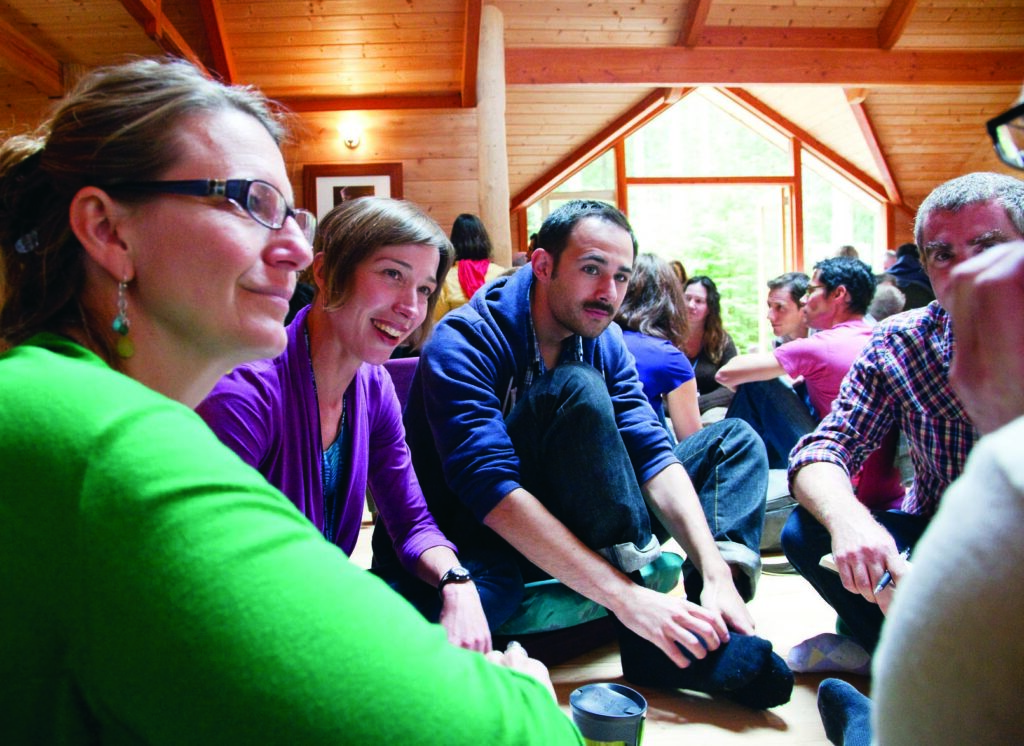
Tricia: We have about 20,000 people a year that come to Esalen. In talking to these people I often hear, “You know, coming to Esalen has changed my life.” There was an article recently in the San Francisco Chronicle about Esalen’s 50th anniversary that said the ideas that came from Esalen during those early years have just changed everything about our culture—how we think, how we pray, how we eat, how we work. A lot of times people are in a hard moment, they’re in a transition in life. I think Esalen offers that respite, a renewal time. It has a very personal impact. People are discovering great things about themselves that were already there, but after the experience here it just shines out to the rest of the world. We see people become better parents. They’re better spouses. They’re better teachers. They find their purpose, their calling in life. I can see that over and over again. Anytime I get personally down or in a negative space, I just sit down and talk to the people that are there. And I say “Well, what workshop are you taking? How’s it going?” And I just hear how much of an impact we’re having on people’s lives. That’s all it takes.
Marta: What’s on the next horizon for your organizations?
Dana: The next edge for Hollyhock is to scale up our ability to reach more people so that we can have more impact. Our Vancouver programs are accessible, affordable and high impact. These last few years we’ve developed partnerships with universities, the Dalai Lama Center for Peace, Power of Hope, and other progressive institutions, seeing what we can do together to broaden our reach and to share skills and stories.
Tricia: There are two major themes that are leading the way forward at Esalen. First we will embrace our role in social transformation with greater intentionality–going from “Me to We.” We plan to do this by building on our distinguished track record of being a catalyst for collective and social change through private gatherings of thought leaders, spiritual teachers and progressive scholars. We plan to increase the topics and number of gatherings and expand the impact of these private gatherings by disseminating the content on our new web site.
Second, we are seeking to diversify the people we serve, reach a broader audience and new generations of leaders. An example of this is the Esalen Integral Leadership Program that is currently underway and that seeks to bring future leaders to Esalen by partnering with universities who will offer college credit for taking our courses. Another priority for us is forging partnerships with social change organizations for public workshops and conferences that serve both our diversity and social impact goals.
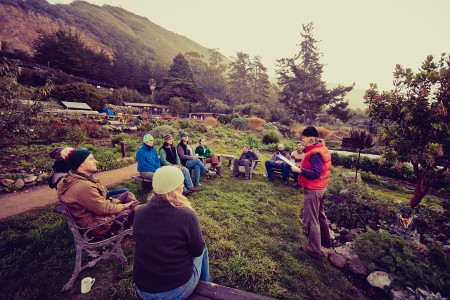
We are also committed to the stewardship of our Big Sur property, to transform our aging structures into a model green educational village that will enhance the visitor and staff experience.
Dana: We launched a website this year called Hollyhock Life. It has several different focus areas, the main ones being Community, Food and Garden, and Big Ideas. Volunteers, interns, our presenters and guests are populating the site with new ideas and content. People can actually interact on Hollyhock Life. They can post articles, or write reflections about their experiences and interests. It’s a really fabulous, interactive site that changes almost every day. That’s the cutting edge of where we are going.
Marta: We’re working with similar questions at RSF about how to scale when so much of the appeal of our work is about the personal transformative elements. How do you really do that in a way that’s meaningful for people?
Dana: That is what we’re all working towards—all three of our organizations. How do we remain relevant? But, not just relevant. How do we remain relevant, and interesting, and facilitate engagement within and outside of our communities? Is it through a deeply personal and collaborative experience?
Centers like Hollyhock and Esalen don’t consider ourselves as competition. The more that we can offer to each other, the more we’ll be able to accomplish. We have, for many years, really been supportive of each other—through our program and operations departments. Collaboration is key to our collective future.
Tricia: I totally agree. Our mission is the same. The next question is how can we get this impact out in the world more effectively by partnering? It is absolutely something I would want to do so we’ll definitely need to connect to further the conversation.
